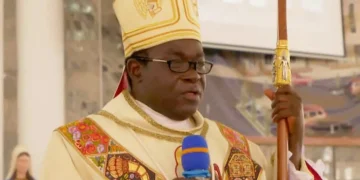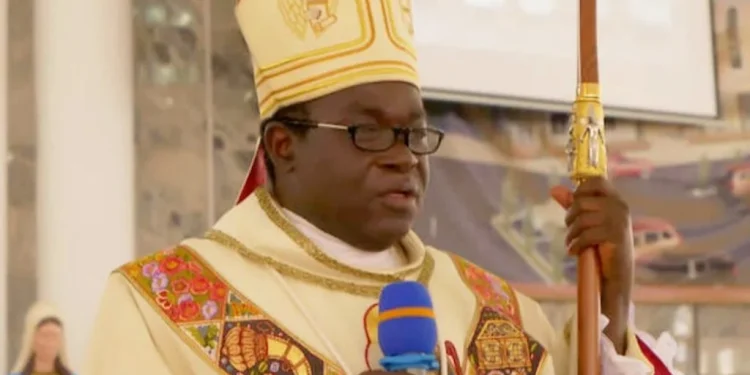Bishop Matthew Kukah of the Roman Catholic Diocese of Sokoto has expressed deep concern over the persistent persecution of Christians in Northern Nigeria, pointing out that those responsible for these acts are rarely brought to justice. He highlighted that, despite the severe treatment the church has endured in recent years, no perpetrators have been formally charged.
Bishop Kukah made these comments during a virtual speech for the Silver Jubilee Anniversary of the Order of the Knights of St Mulumba Nigeria, Eko Subordinate Council, held in Lagos, which was titled “Christian Martyrdom in Nigeria…a Building Block or Stumbling Block to Salvation or Patriotism.”
He also criticized the increasing ethnic bias being imposed on Christianity in Nigeria, urging an end to such discrimination. “In Northern Nigeria, Christians are among those who can be targeted without facing any consequences,” he said. “Consider whether anyone has ever been prosecuted for attacks on churches or Christian properties.”
The bishop recounted several violent incidents, including the murder of a pastor in Adamawa and the killing of priests in Benue and Kaduna. “It appears that targeting Christians is the only act that goes unpunished,” he remarked. He emphasized that the issues faced by churches in Ikwerre, Sokoto, and Onitsha should be a concern for all Christians.
Bishop Kukah further lamented the overshadowing of Christianity by ethnic divisions in Nigeria. “Many people still operate with a mentality that anyone outside their group is an adversary,” he said. “This leads to the marginalization of Christianity in Northern Nigeria and the denial of land for church construction, which is often overlooked.”
He urged that the gospel should be preached beyond political and ethnic divisions. “It is not about friendship,” he noted. “If it were, Jesus would have responded differently to Peter. Martyrdom involves standing up for the truth despite the risk of violence.”
Reflecting on past threats during Abacha’s era, Bishop Kukah recalled being warned about the potential dangers of speaking out. He concluded by emphasizing that Christians face ongoing challenges that can be considered a form of martyrdom, with the ever-present threat of violence.















